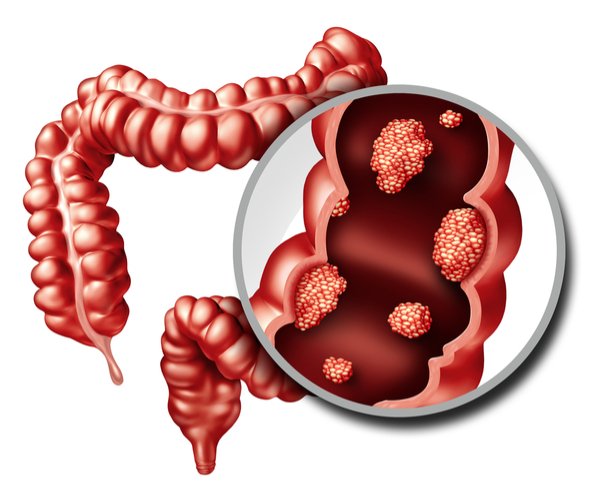What are the Symptoms of Colorectal Cancer?
- Updated on: Jul 8, 2024
- 2 min Read
- Published on Feb 21, 2021

Colorectal cancer does not cause symptoms right away. It progresses over a period of time and the signs and symptoms are visible quite late. Many of the symptoms of colon cancer can also be similar to those of other diseases and may be caused by something else (that isn’t cancer), such as infection, hemorrhoids, irritable bowel syndrome (IBS), or inflammatory bowel disease. But if and when it shows signs, it may cause one or more of the following symptoms.
Signs and Symptoms of Colorectal Cancer
Most of the people who have these symptoms do not have cancer as they could be due to something else. Most of the symptoms are subtle. Still, if you have any of these problems, you should meet your doctor so the cause can be found and treated:
- a persistent change in your bowel habits, such as diarrhea, constipation, going more often, looser stools, and sometimes abdominal pain, that did not exist earlier
- blood in the stools when you do not have piles (haemorrhoids)
- cramping or abdominal pain, discomfort or bloating
- rectal bleeding
- dark stools
- weakness or fatigue
- sudden weight loss
If colon cancer is the cause behind any of the above listed symptoms, often it is only after the cancer has grown or spread. Therefore, doctors recommend that you get tested for colon cancer before you notice any symptoms. Colon cancer that is not yet visible through symptoms but found in screening (testing that’s done on people when there are no symptoms) is easier to treat. Screening can even prevent some colorectal cancers by finding and removing pre-cancerous polyps.
Bowel Obstruction
Sometimes, your bowel does not pass digestive waste material due to the cancer. This remains inside the bowel. This is called bowel obstruction. Bowel obstruction may show typical symptoms such as the following. These symptoms may also be indicative of the colorectal cancer.
- Intermittent and occasional abdominal pain. The pain is usually severe. The pain increases with eating.
- Unexplained sudden weight loss
- Pain and swelling on the abdomen
- Nausea and vomiting
Bowel instruction is a medical emergency and if you suspect your colon is obstructed, you should consider meeting a specialist urgently.
When Do You Need Medical Advice
While bowel cancer or colorectal cancer symptoms are very common and similar to other diseases and conditions, you must meet your doctor if they persist for more than three weeks, though 90% of such persons do not have cancer. It is some other disease.
Also, it is better to meet your doctor if your symptoms come back after stopping the treatment even if they are mild or if you are a young person.
Read more: Treatment of colorectal cancer
If colorectal cancer is suspected, talk to your doctor about when and whether you should begin screening for colon cancer. It is generally recommended that colon cancer screenings begin at age 50. However, if you are at a higher risk, your doctor may recommend more frequent or earlier screening.
Read more: Risk factors and causes of colorectal cancer











